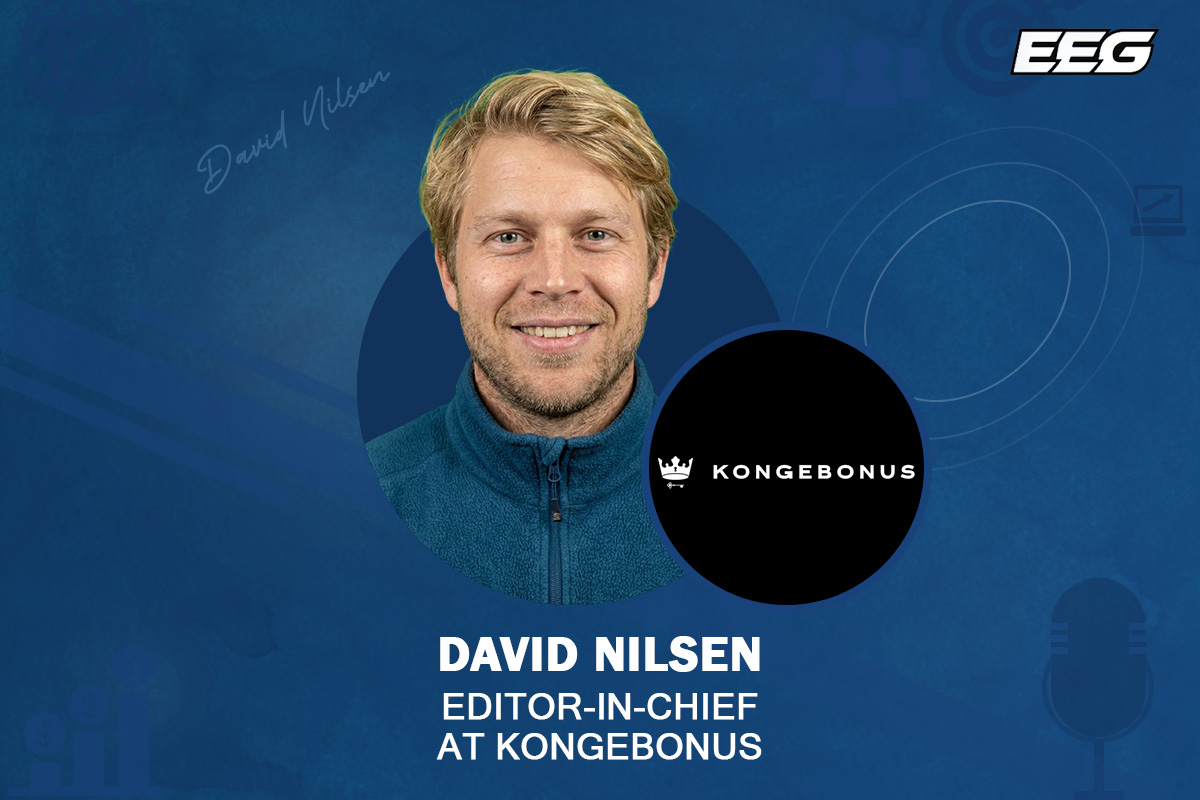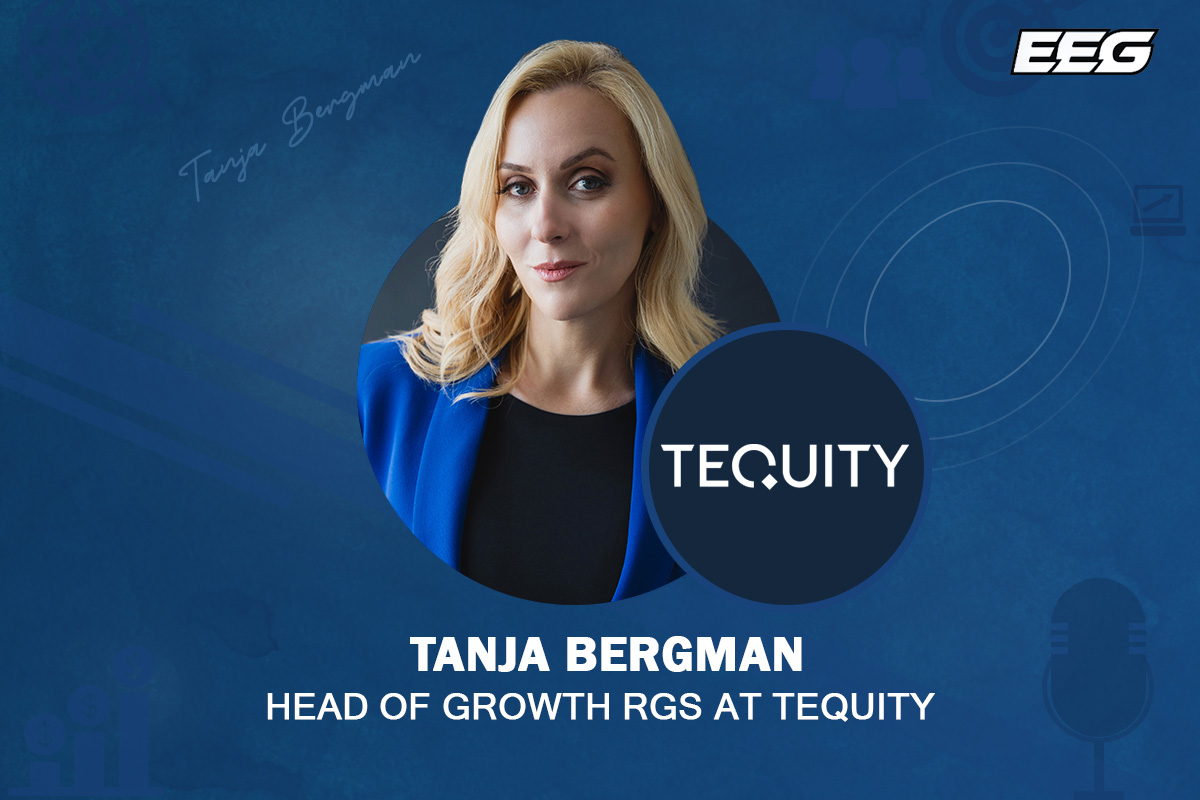Interviews
Exclusive Q&A with Joakim Renman, CCO at Scout Gaming

Is DFS the perfect alternative for sports fans who reside in jurisdictions where sports betting is still unregulated? How much of a crossover is there between sports betting and DFS fans?
Fantasy sports is an integral part of the modern sports fan and the crossover is near perfect. Our data shows that sportsbooks that offer DFS can see a significant increase in the time customers spend on site, the money they spend and the trust they have with the brand. Of course, this works both ways so for operators limited to DFS at present they have the potential to unlock powerful cross-selling opportunities once they are permitted to offer sports betting.
For us it does not matter whether the market is regulated or not. The Scout Gaming platform is modular so can be adapted to any market and in particular any regulatory requirements that have to be met. We want as many operators as possible to leverage the potential of daily fantasy sports so we have built our products and services to be customizable in a short space of time and with very little effort.
DFS has been growing in popularity around the world continually over the past few years. What aspects of this vertical cause it to be so appealing to the new generation of players entering the market?
I think it has a lot to do with the complexity of daily fantasy sports when compared with sports betting. Players are far more invested when creating their teams than they are when simply betting on the outcome of a football match. DFS offers additional layers of engagement, it is a more sophisticated product and poses a greater challenge.
It also helps players to connect with the sport on a deeper level. It creates an emotional attachment that carries over to the DFS products they are playing and the brand they are playing with. Ultimately, DFS players see the game differently to a sports bettor and this in turn enhances their joy of betting and gambling.
The social aspect of DFS is also a big draw for players. Sports betting can be solitary but with DFS there is a huge community of like-minded players. There is a lot of content created around DFS and people like to talk tactics and strategies and share performance stats on social media. Of course, DFS is a community-driven game at heart as it requires high levels of liquidity to offer the best player experience.
Some industry commentators believe that being able to continually offer the customer something new and different is a core aspect of player engagement. How important is innovation to Scout Gaming and what are some of the most exciting innovations available in the market? What does the next level of DFS look like?
Innovation is key and that is why sportsbook operators are looking to add daily fantasy sports to their offerings. Sports betting has remained fairly stagnant for a number of years now; players are offered the same odds, markets and bet types. To take their propositions to the next level, operators need to add more variety and DFS provides this.
Here at Scout Gaming we are incredibly focussed on developing new features. Our international real money network liquidity solution for paid DFS has put us miles ahead of any competitor trying to break into the market.
Add to this our bet recommendation engine, Betflex, unique playing features like Pursuit, Late Swap, Safety Net, Bet-on-my-Team, Player Performance Odds, Player Sportsbook, Player Matchups and you can see why we are at the cutting edge of the fantasy vertical.
That we’ve done all of this on Web Components, a new technology from Google that looks set to become the standard in the gaming space, means we can maintain a fast pace of development to remain ahead of our rivals.
This really is a new universe where the sky is not even the limit.
New innovations such as the Scout Gaming Fantasy Player Odds Markets are a great way to further integrate two different audiences. Is DFS the perfect complement to sportsbook products and how big Is the cross-selling opportunity?
According to our internal data and analysis from one year of numbers from a client success story, typical sportsbook players who are exposed to Scout Gaming’s fantasy products have 22% more active days, 14% more turnover and 7% higher GGR on the partner’s sportsbook.
The effect on sportsbook performance from heavy fantasy sports users is even more drastic. This leads to 35% more active days, 45% more turnover and a 20% increase in GGR on the sportsbook.
In addition, iGaming partners see an extra 3.9 active days per user per month. Finally, 54% of users in full seasonal games are retained for 9+ months, greatly reducing customer churn.
This proves that DFS is a perfect complement to sports betting since it offers sportsbooks vital product differentiation while substantially increasing GGR and improving user active days and turnover.
The esports sector has experienced unprecedented growth recently and offers great growth opportunities for potential market entrants. How can verticals like DFS help operators successfully tap into these online communities and keep them engaged?
Regular sports do not have communities in the same way that esports and DFS do. Esports in particular is consumed online and via channels such as Twitch and Youtube where community engagement is encouraged and celebrated. Because esports is consumed in an online world, players are far more connected to the game being played and to related products.
The same applies to DFS; it is community driven and players have a much deeper engagement with the sports, teams and players they are “betting” on. By offering DFS, traditional sportsbook operators can tap into these communities and, given the cross-sell potential mentioned above, unlock tremendous growth as a result.
DFS products have seen great success in key regions such as North America, Australia and is still yet to fulfil its full potential across Europe. What regions do you see offering the best growth opportunities in this sector and what can we do as an industry to push DFS to the next level?
DFS is forecasted to represent somewhere in the range of 2.2%-3.2% of the entire European real money wagering market. With a total market size of €24.7bn, this represents a total addressable DFS market of €550m-€700m, much of which is still largely untapped. With the US market having already surpassed the $500m mark and growing at a steady pace, we definitely see Europe as a significant market and one that will grow at a much faster pace and with less competition.
How did the lack of live sports affect the DFS market last year? What can DFS operators do to better protect themselves from these instances in the future?
The key is to not focus too much on a single sport or set of leagues and instead offer enjoyable experiences that span literally any sport, league and with multiple ways to play.
We were able to face the challenges of the pandemic by having all of our technology, IP and knowledge in-house; this allowed us to immediately cater for whichever sport or league was available at any given time. Whether eSports, Taiwanese Basketball or even minor local leagues, we were able to make sure that the music never stopped playing for our operator partners.
Scout Gaming reported a 54% revenue increase for Q1 of 2021. What do you think has been the key driver of this growth and how can these levels be maintained going forward?
There are several factors behind the growth we recorded in Q1. We are constantly improving our product which in turn allows us to gain even more traction with existing and new operator partners. As our liquidity network is shared between all of our partners, the more operators we add the more attractive our product becomes to new customers.
This is because we can offer bigger prizes and also invest in the development of new games, betting types, markets and so on.
In terms of continued growth, we are set to go live with several new partners including two tier 1 operators, both first of its scale and size. Our sportsbook has also seen a significant increase in traction of late and we’ll be “completing” the offering with the addition of key features such as Live Betting, Bet-Builder, Cash-Out and of course a few Easter Eggs spawned from the intersection of fantasy and sports betting. There is incredible momentum behind the business right now and I am excited for the rest of the year.
Powered by WPeMatico
AI
Why operators are choosing to buy in their AI strategy

In an industry where margins are thin and player loyalty is fleeting, customer experience has become a key differentiator for operators. As AI becomes a core operational requirement, leadership teams face a clear choice: build proprietary technology in house, or partner with purpose built AI CX providers.
Alex Gould, CTO at Conduet, explains why more operators are choosing the latter.
What industry-specific CX challenges can an exterior solution address ‘out of the box’ compared to a generic build?
Generic AI struggles in sports betting and iGaming because player inquiries are shaped by complex, domain-specific rules and edge cases. Questions about settlements, promotions, withdrawals, or cash outs are rarely straightforward. They depend on wager structure, timing, eligibility criteria, and operator-specific logic.
Over 80% of player inquiries require pulling live, account-specific information from the PAM and applying it correctly within that broader rule set. Without purpose-built logic to interpret both the data and the edge cases around it, responses quickly become incomplete or incorrect.
This limitation is reflected more broadly in enterprise AI adoption. Research from MIT found that 95% of enterprise AI initiatives fail to deliver measurable business impact, often because broadly trained models are pushed into live environments without the domain context needed to handle real-world variability. What appears to work in controlled testing breaks down once exposed to operational complexity.
Purpose-built platforms are designed around this reality. By training on gaming-specific data, workflows, and failure modes, they can interpret live PAM data in context and handle both common and complex inquiries accurately from day one, without relying on extensive rules, manual escalation, or post-deployment patchwork.
How would you characterise the current skills gap within operator teams regarding AI implementation?
Operator CX teams are closest to the customer and understand where friction exists. The challenge is not identifying opportunities, but delivering AI that performs reliably in production. Turning insight into production-ready capability requires technical depth, dedicated ownership, and sustained iteration that sit outside the remit of most CX organisations.
Deploying AI in gaming requires expertise across model evaluation, conversation design, failure handling, and real-time interaction with PAMs and ticketing systems. It also requires ongoing investment to monitor performance, manage edge cases, and improve outcomes as volumes and player behaviour change. CX teams are structured to run day-to-day operations, which makes sustaining this work in parallel difficult.
As a result, many internal AI CX efforts stall or remain narrow in scope, not because the opportunity is unclear, but because the execution burden is too high.
What is the average time to market using a specialist platform, versus a full in-house build?
In-house AI efforts typically take 18 to 36 months to reach enterprise-ready scale. The delay is driven by the need to coordinate across CX, product, data, and engineering while establishing new ownership and operating models inside live CX environments.
A specialist platform compresses this timeline materially. With gameLM, operators can move from concept to live inbound CX in six to 12 weeks. Operators achieve 60%+ resolution within 90 days, scaling toward 80%+ shortly thereafter.
Why does a purpose built partnership model matter in iGaming & OSB CX?
In iGaming and online sports betting, the challenge is not adopting AI, but making it work reliably at scale. Generic platforms often shift the burden onto operators after deployment, requiring significant time and internal effort to adapt the technology to gaming-specific realities. That effort compounds as complexity grows.
A purpose built partnership model changes that dynamic. Instead of operators spending months closing gaps, AI is deployed using operating patterns already proven in live gaming CX. Common failure modes, escalation paths, and performance tradeoffs are understood upfront, reducing the need for downstream rework and ongoing firefighting.
Conduet applies this approach through gameLM, informed by operating a 500+ agent gaming CX organisation. That operating knowledge functions as an embedded R&D capability, shaping how the platform is tuned, prioritised, and extended alongside each operator’s environment. Inbound CX performance today directly informs the development of additional, gaming-specific capabilities such as reactivation, payments optimisation, and fraud prevention.
The result is a partnership model that delivers strong outcomes without transferring the hidden cost of adaptation and maintenance back to the operator, allowing CX capability to keep pace as the industry evolves.
Alex Gould is the CTO at Conduet, where he leverages his technical and strategic background to guide technology strategy and innovation. He is also the Founder and CTO of Everyday AI and previously founded computer vision company ViewX. Alex’s earlier experience includes roles at Primary Venture Partners and Bain & Company, and he holds an MBA from Columbia Business School and a Bachelor of Engineering (Hons) from the University of Canterbury.
The post Why operators are choosing to buy in their AI strategy appeared first on Eastern European Gaming | Global iGaming & Tech Intelligence Hub.
Interviews
Inside the Kongebonus Awards: What Norway’s Players Are Telling the iGaming Industry

As the only iGaming awards originating from Norway, the Kongebonus Awards are decided entirely by open player voting, offering a rare, unfiltered view into what truly resonates with a dedicated gaming community. Kongebonus Editor-in-Chief, David Nilsen, explains how this year’s results reflect shifting player expectations, highlight both emerging and established studios, and contribute to wider industry conversations around quality, innovation and long-term engagement.
The Kongebonus Awards are now in their fourth year. How have you seen them evolve since the first edition?
Since the first edition, the Kongebonus Awards have grown both in reach and in significance. What started as a way to highlight standout games for our Norwegian audience has developed into a recognised annual moment where player sentiment is clearly reflected back to the industry. Each year we see greater engagement from the community and more awareness among studios and suppliers about what the awards represent. The structure has also matured, with categories that better capture the diversity of modern game development. Most importantly, the awards have become a consistent reference point for which games and providers have truly connected with players over the past year, giving the results increasing weight within the wider iGaming conversation.
This year’s awards were presented in connection with ICE Barcelona. How important is it to connect a Norwegian, player-driven initiative with the wider international industry?
Connecting the awards to an international event like ICE Barcelona helps bring local player insight into the global industry spotlight. While the voting comes from Norwegian players, the studios and games involved operate across many markets. Presenting the results in that setting underlines that player preferences in Norway are part of wider trends in iGaming. It also allows international stakeholders to see how a Nordic audience responds to different styles of games, mechanics and themes. That perspective can be valuable for product planning and market strategy.
This year’s winners were decided through open public voting. Why is it important that the results reflect the voice of players so directly?
Having the winners decided through open public voting ensures the results are grounded in real player experience. The recognition comes directly from the people who have spent time with the games, formed opinions and chosen their favourites. That gives the awards a strong sense of authenticity. It moves the focus away from internal industry perspectives and places it firmly with the end users. For studios, this kind of recognition signals that their work has genuinely resonated with players, not just performed well commercially. Player-led results offer a clear and transparent indicator of which games and providers have built lasting appeal, and that makes the outcomes especially meaningful within the industry.
The awards focus not only on commercial performance, but also on quality, innovation and player experience. From this year’s winners, what stood out most to you?
What stood out most was the balance between creativity and accessibility. Players clearly reward innovation, but only when it is paired with strong execution and an enjoyable overall experience. Many of the recognised titles combine distinctive mechanics with clear game identity and smooth gameplay. There is also evidence that consistency matters. Studios that repeatedly deliver engaging, reliable experiences tend to build strong followings, and that loyalty is reflected in the voting.
How do categories such as Rising Star Game Developer and the Readers’ Hall of Fame help ensure the awards spotlight both emerging studios and more established names?
These categories make sure the awards reflect the full spectrum of achievement in the industry. The Rising Star category gives visibility to newer studios that are already making a strong impression with players through innovation and creativity, even if they do not yet have the scale of the largest providers. In contrast, the Readers’ Hall of Fame recognises games that have achieved lasting popularity and become long-term favourites. Including both perspectives shows that excellence is not limited to one stage of growth. It highlights that players value both fresh ideas and proven experiences.
Looking ahead, how do you expect the awards to continue growing, and what role do you see Kongebonus playing in shaping player-led conversations in the industry?
As player expectations continue to change, the awards will develop alongside them. The aim remains to document and highlight the studios and games that genuinely stand out from a player perspective. Over time, this may mean refining categories or exploring new ways to reflect emerging trends, while keeping open voting at the core. Kongebonus will continue to act as a bridge between players and the industry, translating community sentiment into insights that studios and suppliers can learn from. By keeping the focus on player experience and feedback, the awards can play a growing role in encouraging the industry to prioritise quality, innovation and long-term player engagement.
To find out more about this year’s Kongebonus Awards and see the full list of winners, visit: https://www.kongebonus.com/nyheter/vinnere-av-kongebonus-awards-2025/
The post Inside the Kongebonus Awards: What Norway’s Players Are Telling the iGaming Industry appeared first on Eastern European Gaming | Global iGaming & Tech Intelligence Hub.
Interviews
Scaling innovation through the launch of Tequity Publishing

Following the announcement of its new publishing vertical and the successful debut of Royal Drop, we sat down with Tanja Bergman, Head of Growth RGS at Tequity, to discuss how this new arm is set to dismantle technical barriers for ambitious studios and why scalability is the new frontier for the ‘Burst Games’ genre.
Tequity has just officially launched its Publishing vertical. What was the primary catalyst behind this move?
The industry is currently in a fascinating place. There is no shortage of creative talent among studios, but there is a massive technical bottleneck. We have seen so many ambitious studios with incredible concepts – especially those moving beyond traditional slots – who have been getting bogged down in terms of getting those concepts out into the marketplace.
The catalyst for Tequity Publishing was simple. We wanted to break down those technical barriers. By handling the infrastructure, distribution, and compliance frameworks, we allow studios to do what they do best, which is build outstanding games. It’s about speed-to-market without compromising on the quality or the vision of their content.
The launch coincides with the release of Royal Drop. How does this game, and the partnership with Mirror Image Gaming and The Fortune Engine, showcase what Tequity Publishing is all about?
Royal Drop is the perfect proof of concept. It’s a collaboration that highlights three important pillars of modern game delivery. You have Mirror Image Gaming bringing that fresh, video-game-influenced Burst Games energy, The Fortune Engine provide the math tools and templates, and Tequity Publishing offers the global scale and distribution pathway.

It shows that when you remove operational friction, you can create a game-first experience that appeals to a new generation of players who want something more interactive than a standard 5×3 reel.
Tequity Publishing offers two models: RGSaaS and RGS-to-RGS. Can you walk us through the strategic benefits of each?
Flexibility is key, because no two studios are at the same stage of their journey. The RGSaaS model is our full-service offering. It’s designed for studios that want to focus 100% on the creative side. We provide the entire infrastructure and publishing framework and it is essentially a business-in-a-box for game creators.
The RGS-to-RGS model is a more streamlined, tech-first approach for studios that already have their own RGS but lack the distribution muscle. It allows them to plug into our growing operator and aggregator network instantly. Both models are built on the same philosophy: helping studios reach parts of the market they otherwise couldn’t access on their own.
You mentioned reaching new generations of players. How does this vertical specifically empower studios to innovate in ways they couldn’t before?
When a studio is concerned about how they are going to integrate with a multitude of different operators or how to navigate complex jurisdictional requirements, they tend to play it safe. They stick to what they know.
By taking that weight off their shoulders, we give them the opportunity to be brave. Studios like Mirror Image Gaming are pushing the boundaries of modern iGaming, taking influences from the video game world. This is exactly what the new generation of players is looking for. We provide the scalability so that these niche, innovative ideas can achieve mass-market impact.
It’s been a busy period for Tequity, following the success of your Originals series and the iBankroll partnership. How does the Publishing vertical fit into the broader Tequity roadmap for 2026?
It’s all part of becoming the ultimate technology partner for the gaming industry. Whether it’s our streamer-friendly Originals or our Bankroll-as-a-Service offering, the goal is to provide scalable, customisable solutions. Tequity Publishing is the natural evolution of that mission. We aren’t only providing the tools anymore, but also the pathway to the player. Looking ahead, you can expect a series of further launches through our three-way collaborations. We’re proving that the barrier to entry for innovation has never been lower.
Finally, for studios looking to scale quickly, what is your main message to them?
Don’t let technical noise drown out your creative signal. If you have a game concept that breaks the mould, you shouldn’t have to spend years building the distribution architecture to get it seen. That’s what we’re here for. We want to help you launch at a speed and scale that matches your ambition, so that you can make a significant splash in the industry.
The post Scaling innovation through the launch of Tequity Publishing appeared first on Eastern European Gaming | Global iGaming & Tech Intelligence Hub.
-

 Amusnet7 days ago
Amusnet7 days agoWeek 7/2026 slot games releases
-

 Brino Games7 days ago
Brino Games7 days agoQTech Games integrates more creative content from Brino Games
-

 Aphrodite’s Kiss7 days ago
Aphrodite’s Kiss7 days agoLove on the Reels: Slotland Introduces “Aphrodite’s Kiss”
-

 Alex Malchenko7 days ago
Alex Malchenko7 days agoEvoplay Strengthens Canadian Presence with BetMGM Partnership
-

 3 Oaks Gaming7 days ago
3 Oaks Gaming7 days ago3 Oaks Gaming Enters Spanish Market
-

 AMLA7 days ago
AMLA7 days agoAMLA Launches Public Consultation on Three Draft Regulatory Acts
-

 3 Oaks Gaming7 days ago
3 Oaks Gaming7 days ago3 Oaks Gaming Secures Registration from MINCETUR to Enter the Regulated Peruvian Market
-

 Latest News7 days ago
Latest News7 days agoRed Papaya Presents: Lucky Rainbow Rush Adventure



















